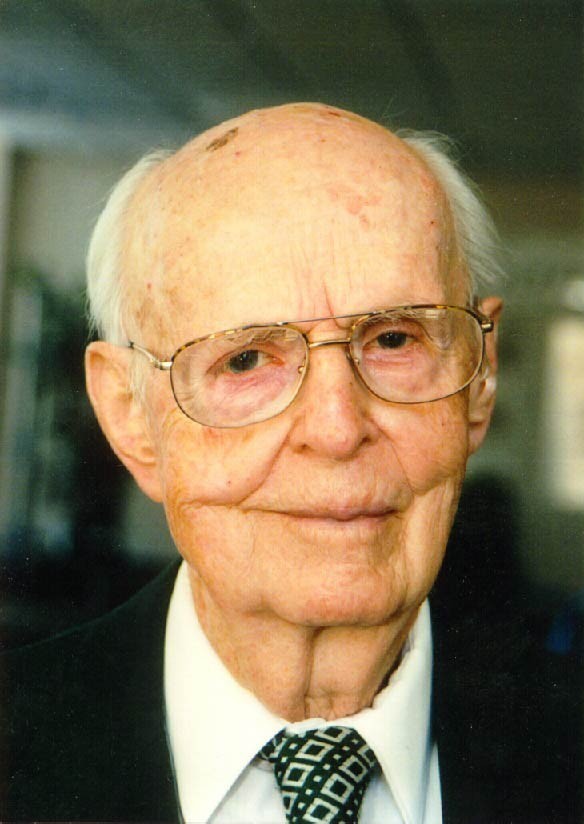
The Stark Award for Advanced Scholarship

Dr. Frederick M. Stark grew up in St. Paul, Minnesota. He graduated from Yale University and the University of Minnesota Medical School in 1940. After completing a residency at the Mayo Clinic, he practiced neurology and psychiatry in Sioux City, Iowa from 1949 until he retired in 1982. He also taught part-time at the University of South Dakota School of Medicine from 1949-1972. Dr. Stark died on August 9, 2000.
Dr. Stark established The Frederick and Alice Stark Neuroscience Research Fund for students in the Neuroscience Graduate Program. He also endowed the Frederick and Alice Stark Neuroscience Chair, enabling the current chair holder, Horace Loh, Ph.D., to conduct internationally respected research in the fields of molecular neuropharmacology and biochemical pharmacology, focusing on what causes people to become addicted.
The goals of the Stark Award are to support students in the Graduate Program in Neuroscience
- During advanced training in a specific technique in a laboratory in the U.S. or abroad
- Training in a formal course such as those given at Woods Hole
- For travel to a small, specialty conference.
APPLICATION PROCESS
Please Note: In order to distribute funds equitably, individual students will be eligible to receive only one Stark Award during their graduate studies. Awards can be funded up to $1,000.
Application Material
Support for Advanced Training in a Technique:
1) A statement by the student describing the technique(s) that the student would like to learn, the reasons that learning the particular technique is important, the benefits of the technique to the student's research, the nearest laboratories in which the technique could be learned, the time necessary to learn the technique.
2) A statement by the advisor describing the potential importance of the technique for the student and the laboratory in which the student works.
3) A letter from the director of the laboratory in which the student wishes to learn the techniques stating his or her willingness to teach the student the technique.
4) A summary of expenses including travel, accommodations, per diem, etc..
Support for Attendance in a Formal Course:
1) A statement by the student including a description of what he or she hopes to learn in the course, why the information will be important to his or her training, the dates and location of the course, an estimate of all expenses involved in taking the course including registration, accommodations, travel, per diem, etc..
2) A brochure or statement from the organizers of the course describing the content of the course.
3) The student's transcripts and a description of the students research interests and progress.
Support for Travel to a Specialty Conference:
1) A description of the conference including a statement regarding the relevance of the material to the student's training.
2) If the student is presenting a paper at the conference, a copy of the abstract should be included.
3) A statement by the student's advisor(s) regarding the meeting and its significance to the student.
4) A summary of expenses including travel, accommodations, per diem, etc..
Support for Students who Work in Laboratories that have Temporarily Lost National Funding:
1) A statement of need by the student's advisor(s).
2) A description of progress of research by the student.
3) Graduate student transcripts.
Evaluation Process
There are four annual deadlines to apply for the award: March 30th, June 30th, September 30th, and December 30th.
Specialty conferences or formal courses must take place between the application deadline and the subsequent application period. For example, if an applicant plans to attend a conference in April, their application deadline would be March 30th.
If awarded, funds will be disbursed once confirmation of conference or course registration is received.
Students are limited to one application per year for the Stark award.